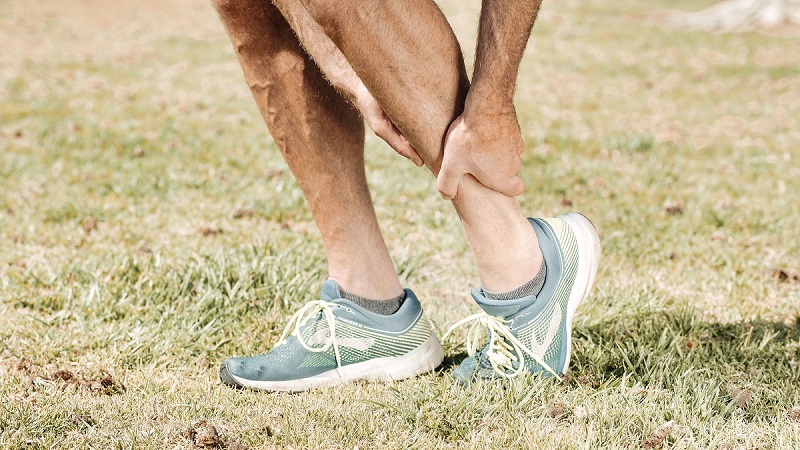Have you ever wondered if sometimes running could be too much? If the answer is yes, it means that you probably encountered one of the situations where you ran maybe too much.
Signs of running too much (overtraining). It’s considered too much running if your body doesn’t have sufficient time to recover for the next run or training session. Each body is different; therefore, some people will experience it differently, but these are some of the most common signs of too much running:
- Constant fatigue
- Decreased running performance
- Bad sleep quality
- Muscle pain
- Loss of motivation
- Getting easily injured
- Loss of appetite
- Heavy legs
- Feeling extremely tired
- Easily irritable
If you are experiencing any of these symptoms for a longer period of time, it is best to take a break from running and restart. Take your mind off running and let your body recover properly. When you start feeling energized again and feel that you miss running, wait a few more days.
It is important to start exercising again when your mind and body are fully recovered and ready to go.
How do we know when it’s too much running for us?
Well, that depends on a few factors.
1. Stage of Running
In what category are you? Beginner, amateur, or professional runner? Each category will have its “limits” different from each others.
For example, a beginner running more than 20 kilometers per week could be too much running. If you are just getting into running, you should slowly increase your mileage. Start with running 2-3 times per week, 5-10 minutes of running.
In a month you could get up to 25-30 minutes of running at once, at a slow pace. Anything longer or faster could be considered too much running.
Our bodies need time to adapt to the effort. In order to increase the aerobic capacity of your muscles, the mitochondria need to increase their density, the hemoglobin to increase its content, and the total blood volume to increase its blood supply.
Consistent and gradual training will bring your body to a point where you can sustain more effort.
Remember that it takes time, and it should be done gradually. It is recommended not to increase your mileage/time by more than 10% in a week.
Amateurs and professional runners could run anywhere from 50 to 150 km a week. It all depends on their cardiovascular capacity and years of training. Too much running for these categories can be judged only based on their symptoms and previous experiences.
In the running community, “too much running” is known as overtraining. In order to get better and improve running times, athletes should increase their load of work and add more stressors to their bodies (such as lifting, speed workouts, and cross-training). This formula for success could drive them towards training too much. Too much, as in many cases, is not always better.
2. Inherent ability
Another factor that stays between our desire to run a specific mileage and the ability to do it is our genetics.
Unfortunately, this is not something we can control. The difference is made by everyone’s anatomy, biomechanics, cardiovascular system, heart size, cardiac output, and so on. In this case, as we discuss running too much, which could be responsible for injuries and overtraining, genetics is accountable for muscle fiber type, and predisposition to injuries (such as tendon or ligament injuries).
Skeletal muscles are made up of two types of muscle fibers: slow-twitch muscle fibers and fast-twitch muscle fibers. Slow-twitching fibers are beneficial for longer distances, and endurance running, while fast-twitch fibers are advantageous for sprinting. The point is that for some people it is easier to get faster and run longer and others have to work harder for it. It is important to find what is the right mileage for you where you feel energetic and injury-free.
3. Nutrition and hydration.
Sometimes the reason we can’t sustain more effort or recover after a harder run is that we don’t fuel properly our body.
When you are training high mileage or doing any type of higher intensity exercises you need to pay closer attention to what you are eating; if you are eating enough of it and if you hydrate enough. Proteins, carbohydrates, fats, and greens are essential for energy and recovery.
Therefore, if you are looking to optimize your performance and step up the game, I will recommend adapting your foods to a balanced diet that contains nutritional, healthy foods.
You don’t need to have a strict diet, but you need to prioritize eating foods that will boost your recovery and energize your body.
Hydration is as important as diet or training. Enough hydration will help remove waste in your body, regulate your body temperature, cushion your joints, and so on. During hot days of summer, water is not enough to prevent dehydration, that is why it’s recommended to increase your electrolytes or sodium intake.
5 Ways to Prevent Overtraining.
1. Add cross-training to your routine.
Doing the same movement every day could put too much stress on specific muscles and overdo it.
By including days of cross-training and weight exercises, you’ll be using different muscles. Working other muscles, it will decrease the risk of injuries, and increase your performance.
2. Change your running shoes every 300-400 miles
Running shoes like everything else, have an expiration day. They are engineered to improve running performance through their midsole cushioning, arch support, and comfort. If they are worn out the cushioning can’t absorb the impact anymore, which will put more stress on your joints and muscles.
3. Run on different surfaces
Running on hard surfaces like concrete or asphalt puts more stress on your joints. It might be beneficial to run on a soft surface once in a while. Harder surfaces don’t absorb much stress compared to grass. See shoes for concrete surfaces.
4. Fuel your body properly
Make sure you get enough calories during the day. Those calories should come from healthy and unprocessed foods.
5. Hydrate well
Drink plenty of water throughout the day. Include electrolytes or hydration drinks.
When I Ran too Much. 😬 😬 😬
From my personal experience, I have been running too many times. As an athlete with so much experience, you will think that I know to see the signs of overtraining early enough to change the course. but, sadly I am not listening to my body as much as I should.
When you love running, you can’t stand the idea that you could possibly run too much.
Unfortunately, our bodies say otherwise and stop us from doing anything that’s too much. I understand that you want to put in the effort, but sometimes less is better.
Listen to your body and take a step back with the first sign of overtraining. Better to take a day off than a week. My coach told me once “better to be 10% undertrained than 1% overtrained.
4 Must-Do’s After Running
When you complete your exercise or a sweaty run you will feel tired but competent. But it is as significant as running to come back to the normal routine.
These are 4 must-do’s that one should take care of after running.
1۔ Cool down your body
When you start your running first you warm up your body to start your body for exercise. Similarly, after the completion of a run or a fast walk cooling down your body is also an essential part of post running routine. A cool-down will help your body to get back into a state of rest.
Cooling down will also reduce your breathing rate, and heart rate of your body. It will also relax your body muscles. Your cool-down process must stay for 5 to 10 minutes.
2. Stretching your body
Stretching is an important part of post running routine and it is good for muscle soreness.
Scientifically it is proven that running or exercise stretching improves your muscular performance. Because during a workout your muscles contract and expand and when you stretch later it will make the muscles tighten.
Stretching also avoids regular injuries on the ankle and knees. Because stretching will boost the flexibility of a muscle and helps to carry the workload.
3. Rehydrate your body
Our body weight makes up 60% of water and it plays a crucial role in our body function. So you must take water after an immense run. There is no as such need to get conscious about the number of glasses you just simply drink water and indulge your thirst.
4. Have some snacks
It is a good habit to have something to eat after a run because it will help to refuel your body. It will restore your protein To rebuild your muscles. Scientifically proven that your meal should contain carbohydrates to freshen up your body by rehabilitating your body’s glycogen.
To conclude this article we can say that follow the above-described post-running routine just to get a bounce after an onerous running spell.
The Giveaway:
Too much running can be bad for your heart. That’s because when you run, your heart rate and blood pressure go up. Over time, this can lead to heart disease.
So how much is too much? That depends on your fitness level and health history. If you’re new to running, start slow and gradually increase your mileage. If you have heart disease, talk to your doctor before starting a running program.
In general, it’s best to limit your running to no more than 30 minutes a day, four days a week. If you want to run more than that, add in some cross-training activities on your non-running days. This can help reduce your risk of heart disease.

Hi there, my name is Petronela, and I am professional runner training in the United States but competing for Romania. I fell in love with running at the age of 14 when a stranger put around my neck a very shiny $3 dollar silver medal. Fourteen years later and I still get the same goosebumps when I win a medal.
The reason I am running is a true passion like it was when I was 14, the only difference is that small pressure to maintain the status of a professional runner, win races, and hit the times. That requires commitment, hard work, healthy choices, sacrifice, and many good pairs of running shoes. In my running career, I wore more than 1000 pairs of shoes, and my poor feet had the challenge to get used to them as many times.
I have a Master in Public Health Education and Promotion, a 4:34 indoor mile PR, a 4:13m 1500m PR, and 2:05 in the 800m. I run around 70 miles per week, and I am mentally preparing to run a 5k soon. The shoes I run in are one of the most important parts of the training process.
Nowadays, experts have developed amazing shoes that significantly impact and improve people’s athletic performances and because they are available to everyone for purchase, it is important to know which one is the best pair the shoes for you, to achieve your specific goal. That is why I am here. To share with you a little bit of my knowledge and expertise about shoes.
I hope you enjoy it!



